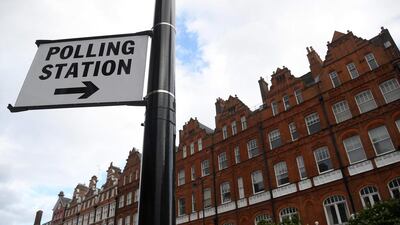Britain votes today with the shadow of terrorism hanging darkly over it. Ditto France, as it goes to the polls the following two Sundays to elect members of parliament. In the countdown to Germany’s federal election in September, there are very real and justified fears of attacks. How could it be any different? This has become the tragic new normal for elections in western democracies.
Britain has suffered two terrorist attacks during the seven-week general election campaign, jolting the generally mannerly debate into a bare-knuckle fight over rights and responsibilities. Incumbent prime minister Theresa May has alleged that her main rival, Labour leader Jeremy Corbyn, is soft on anti-western radicals. Mr Corbyn, meanwhile, has urged a re-examination of the link between western foreign policy and extremism and questioned cutbacks – on Mrs May’s watch – to old-fashioned policing and intelligence-gathering.
Something similar occurred in the closing days of the first round of French presidential elections in April and during the 2015 US presidential election primaries.
In France, a policeman was shot dead on the Champs-Elysees in Paris by a convicted criminal who left a posthumous paean to ISIL. The attack occurred while the candidates engaged in a prime time debate on French television. It enabled the far-right contender Marine Le Pen to propose a more authoritarian regime to combat the terrorist threat against France, while pollsters and pundits speculated feverishly about the effect of the terrorist attack on Emmanuel Macron’s campaign, which espoused emollience, liberalism and inclusiveness.
In the US, in December 2015, Donald Trump attracted the electorate’s attention by proposing a “total and complete shutdown” on Muslim entry to his country after the San Bernardino mass shooting by a married couple. Mr Trump went on to win both the Republican primaries and the general election. France ultimately rejected the Islamophobic, anti-immigrant Ms Le Pen and elected Mr Macron.
Clearly, the terrorism-hit western political landscape is fraught with imponderables. And yet there are some certainties. The greatest terrorist threat to the West isn’t quantifiable at all. It can’t really be counted up in the toll of dead and injured on the streets of London or Paris, in a Manchester concert venue, along the promenade in Nice, in Brussels airport or among the folksy stalls of a Berlin seasonal market. Its hideous toll won’t prompt public displays of mourning, homage hashtags pledging solidarity on Twitter, a sea of flickering candles and grief-stricken gifts of teddy bears or flowers at bloodied sites. But the threat is nonetheless grave. The net result of the random and persistent security challenges may be the way they affect the judgment of western voters as politicians seize on fear and hysteria to argue for reduced freedoms of speech, less religious tolerance, fewer human rights and the trading away of cherished civil liberties.
Each new atrocity – large or small, stymied or successful – subtly affects the electoral calculus, changing the political conversation, driving the terms of debate into new and dangerous territory, and sometimes, even threatening the election outcome.
Consider this. On Tuesday, barely 36 hours before polling booths opened across the UK, Theresa May suggested a new strategy for dealing with the “increased tempo of attacks”. She would rip up human rights laws to impose new restrictions on terror suspects, Mrs May declared. It was a draconian addition to her recently revamped agenda of massive digital surveillance. In concert, right-wing British Islamophobes started to use the “I” word – internment for suspected radicals among Britain’s three-million Muslim population.
From the United States, meanwhile, came a parallel drip feed of communal poison. President Trump whipped up a Twitter-lather against the mayor of London Sadiq Khan, the most high-profile elected Muslim politician in western Europe. And a Congressman belonging to Mr Trump’s Republican Party responded to the British terrorist attacks by urging lay citizens to “hunt (and) kill” anybody they suspect could be a radicalised Muslim.
What’s happening is clear. It is little comfort that internment and hunt-and-kill drew immediate and sharp rebuke across the political spectrum. That they were mentioned at all suggests a coarsening of the public debate. According to Timothy Snyder, American historian and author of the bestselling On Tyranny: Twenty Lessons from the Twentieth Century, terrorism allows politicians to exploit the uproar and “direct political discussions away from rights and welfare and toward fear and pre-emption”.
Eventually, Snyder adds, this reaction serves the terrorists’ purpose, because right-wing governments “espouse the alienating rhetoric and exclusionary politics that help them recruit”.
Another way that terrorism can succeed is in affecting western countries’ foreign policy. The Madrid bombings of 2004 helped cast out Spain’s centre-right governing party, which had supported the war in Iraq.
In 2017, the challenges are substantially different. Western democracies need to find a way to sustain the freedoms that define them even as they fight the existential threat posed by jihadists who abuse the very same freedoms.
Rashmee Roshan Lall is a writer on world affairs
On Twitter: @rashmeerl


